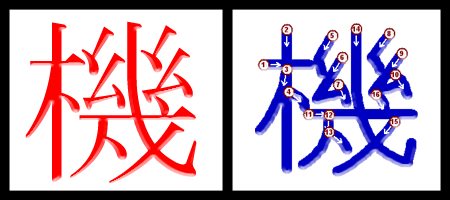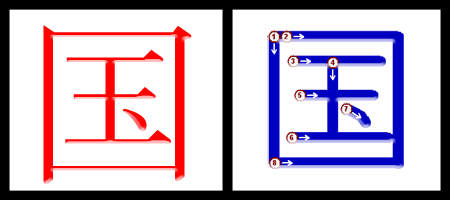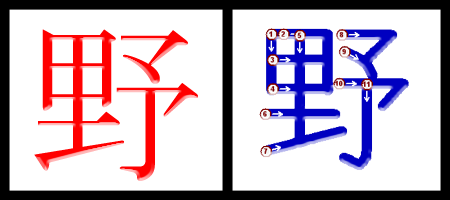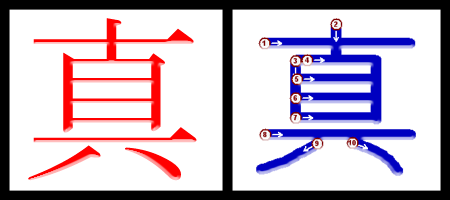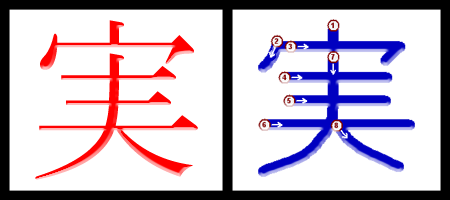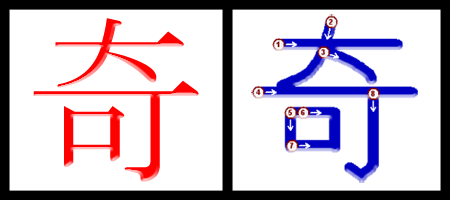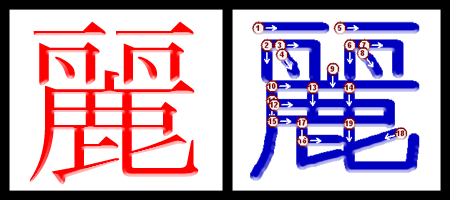June 15, 2008- June 21, 2008
Japanese Word: 機会
Hiragana Equivalent: きかい
Pronunciation: kikai
Meaning/s: chance, opportunity
More information about 機会: Independently, the Kanji character 機 (pronounced as ki) is used to signify the word “machine”, “chance”, “opportunity” or “aircraft”. It may be also pronounced as hata which means “loom”. On the other hand, 会 (pronounced as kai) means “meeting”, “assembly”, “party”, “association” and “club”. It may also be pronounced as e, carrying the meaning “understanding”.
Here are the correct stroke sequences in writing the Kanji form of きかい.
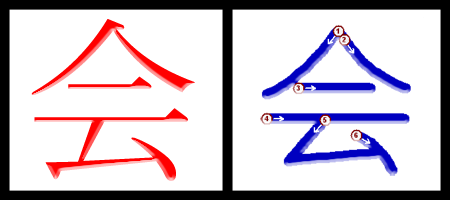 Here are some of the sentences that use 機会.
Here are some of the sentences that use 機会.- あらゆる機会を利用しなさい。 = Avail yourself of every opportunity.
- あらゆる = arayuru = every
- 機会 (きかい) = kikai = opportunity
- を = wo (object indicator particle)
- 利用しなさい (りようしなさい) = riyō shinasai = avail/utilize (imperative manner)
- この機会を必ず利用すべきだ。 = You should avail this opportunity without fail.
- この = kono = this (noun modifier form)
- 機会 (きかい) = kikai = opportunity
- を = wo (object indicator particle)
- 必ず (かならず) = kanarazu = without fail
- 利用するべき (りようするべき) = riyō suru beki = should avail/utilize
- だ = da = are
- これはあなたには唯一の機会である。 = This is your only chance.
- これ = kore = this
- は = wa (topic indicator particle)
- あなた = anata = you
- に = ni (location of person, thing or short-term action indicator particle)
- は = wa (topic indicator particle)
- 唯一 (ゆいつ) = yuitsu = only
- の = no (verb and adjective nominalizer or possession indicator particle)
- 機会 (きかい) = kikai = chance
- で = de (“by means of” particle)
- ある = aru = to have


